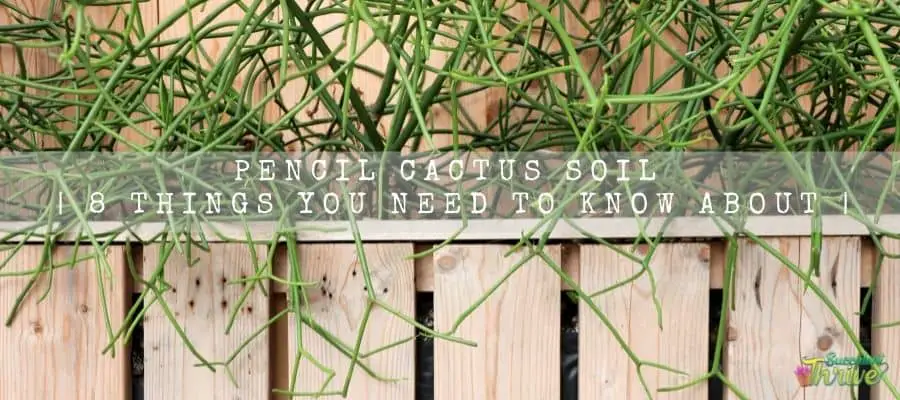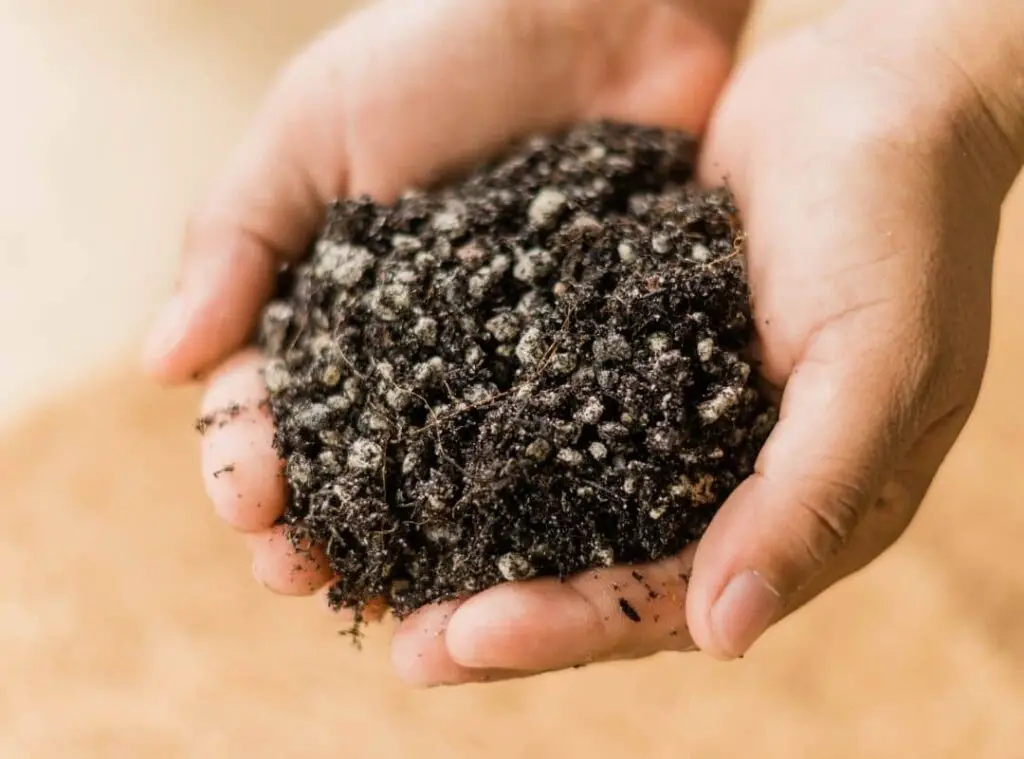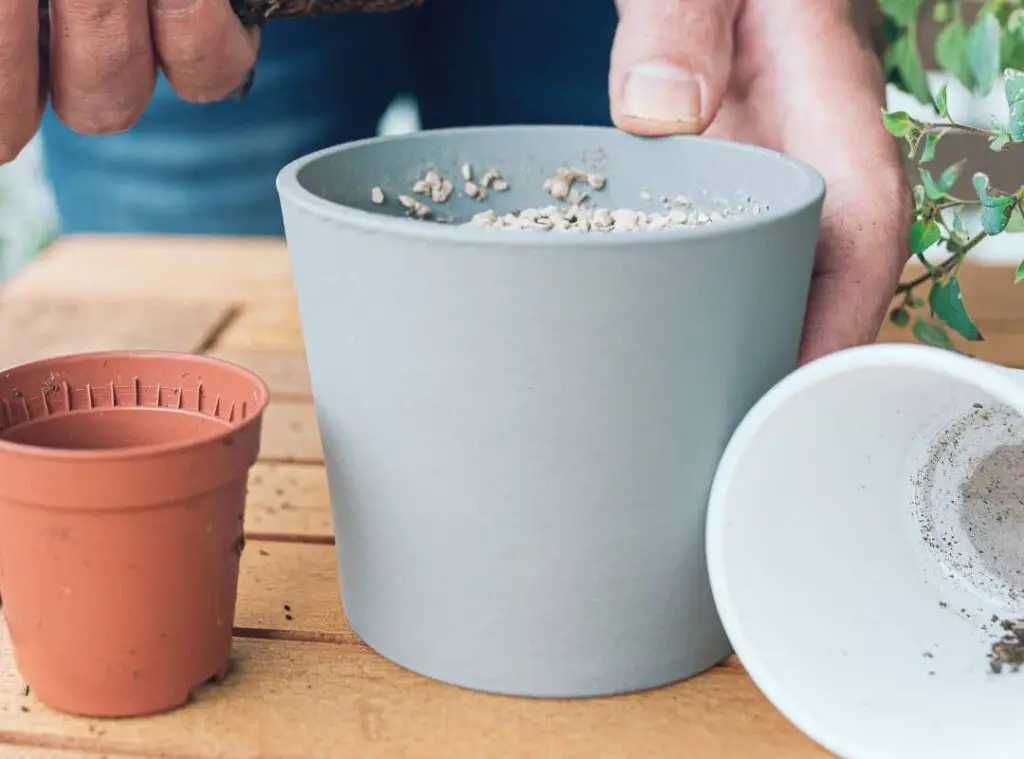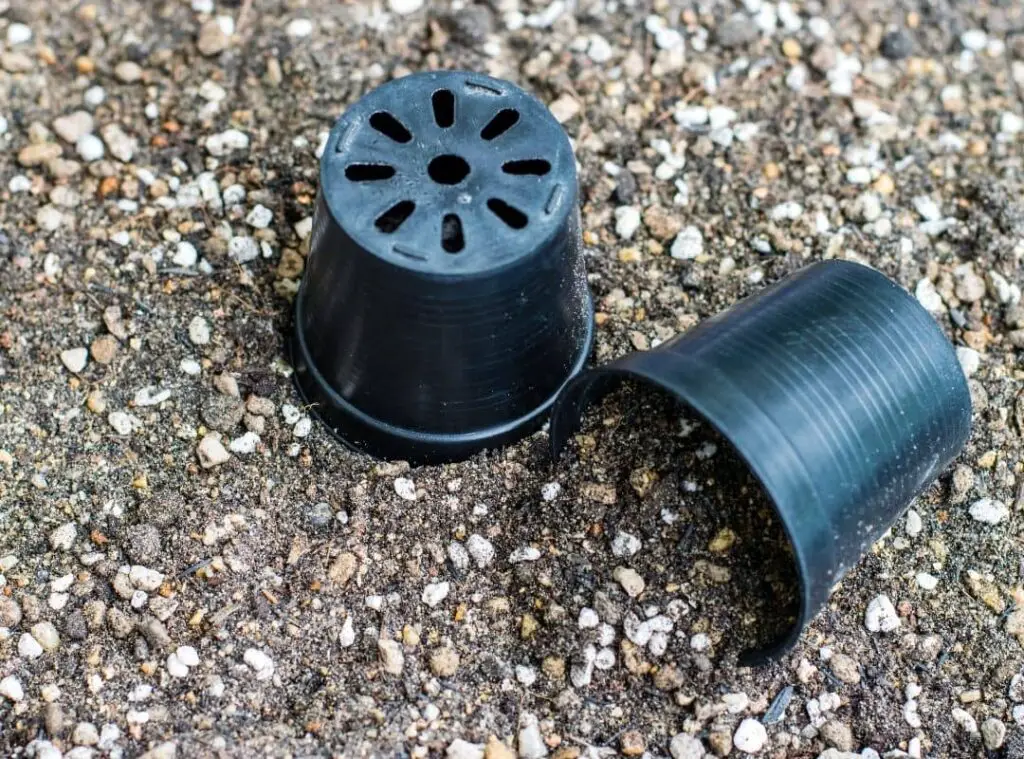Are you interested in growing pencil cactus and wondering what kind of soil would suit them best? Then here we go! Keep reading this article to know about pencil cactus soil requirements.

What kind of soil pencil cactus need?
To briefly tell you as to what kind of soil the pencil cactus would require, they need porous and airy soil.
If you wish to make a perfect soil mix for them to grow, it has to be a blend of gravel, grot or elements which are similar to them along with regular potting medium.
If we touch on the ratio which you need to apply when making a potting medium for pencil cactus, it should ideally be one third organic element into two thirds of inorganic matter.
You could further use gravel chips, crushed granite, poultry grit or even aquarium gravel to make your own well-draining cactus soil mix.
In addition to that, you may also use pumice or perlite as they are light and porous. They would be beneficial to better the drainage of the soil mix.
Moreover, it is important that you let your soil mix drench first and then let it dry. Generally, a right soil mix would take about one day or two days to dry.
Basically, the right soil mix should be equal to their natural habitat soil mix which is dry and used to drought conditions.
Avoid using vermiculite as soil amendment as it would tend to retain water. You may use coarse sand to fasten the draining of the soil.
Read More: 6 Informative Facts About Snake plant Soil | With Details|
Soil pH
It is essential that the soil mix has a correct ph. as well. Avoid using highly acidic soil. Best would be to use a soil mix which has a pH. range of 5.5 – 6, and it would perfectly work on your pencil cactus.
In case you spot your pencil cactus is not showing any growth, it could be due to improper pH in the soil mix.
In addition to that, it could also be due to excess water conservation in the soil which would increase the alkalinity.
If you are applying rainwater for your pencil cactus, it will help to maintain a balanced pH of the soil mix.
You could even find pH testers and request them to check on the pH of your soil. You could do that if you want to ascertain whether you are growing them in the right pH of the soil.

Soil nutrient
In terms of soil nutrients for the pencil cactus to grow, they would usually grow in nutrient poor soil mediums and do not depend on soil which is rich in nutrients.
It is contrary to the rest of the other plants, as the majority of other plants would prefer to grow in rich soil along with nutrients.
If you provide too many nutrients, chances are that it could badly affect the cactus.
Soil moisture level
Moisture level of the soil is one significant factor which is different between the regular plants and the pencil cactus.
Pencil cactus do not want any moisture to retain in the soil. It is true that water draining is better in the regular potting mix too.
However, they generally have an organic material in the soil which could soak up and conserve moisture in the soil.
On the other hand, if you use a cactus soil mix to grow pencil cactus, they will not retain any moisture in the soil as they are basically made out of inorganic elements mainly.
Those elements would help to avoid root rots as well.
Different types of soil for pencil cactus
Succulent and cactus soil mix – This is soil free and you may add coarse sand if you wish to fasten the draining further.
Cactus soil mix – this comprises coir, perlite pumice and sand.
Pencil cactus homemade soil recipes
You could arrange a homemade pencil cactus soil recipe as follows.
Arrange 2 parts of a ready potting mix which you obtain from a store. Alternatively, you could make it at home on your own too.
if you wish to make a potting mix on your own, you may add sand, perlite and peat and blend all of them together at a ratio of 0:5:1:1.
You could use coir instead of peat here. On the other hand, if you obtained a potting mix from a store, it does not come with perlite or with pumice. Hence, you could add them when you bring them home
Further you may add 0.5 parts of gravel or even rocks. If you wish you may add some fertilizers also such as bone meal or eggshells. You could add around 01 teaspoon per 3 quarts.
You have the option of trying this with different elements and check what would suit you the best to fulfill the requirement of the perfect soil mix for pencil cactus.
When you add gravel or rock to the pot base, it could help to retain the potting mix in the pot without letting it come out from the draining holes of the pot.

Guide to plant pencil cactus
Choose correct pot
It is vital that you choose the correct pot to grow the pencil cactus. Best pot type to grow pencil cactus would be terracotta pots which consist of enough draining holes.
When the draining holes are available on the pot base, it would allow the excess water to move through well.
In case you have a pot, which does not have any draining holes, you simply have to drill a draining hole and create one.
If I elaborate more on the pot material further,
Terracotta pots or unglazed clay pots – They would perfectly fit in to grow pencil cactus. Terracotta pots are porous and that will be attributed to having a better aeration in the soil mix. On the other hand, if we consider the unglazed clay pots, water in those pots would tend to evaporate rapidly.
Glazed ceramic pots – if you use these glazed ceramic pots, they will retain more moisture when compared to terracotta pots. However, make sure that you water them infrequently when growing them and glazed pots.
Plastic pots – if you are looking for a pot which you could afford easily, this would be the one. Having said that, keep in mind that they retain a lot of water in the container though.
Prepare the soil
You could add three cups each from sand and regular soil. Further you may add two cups of perlite or pumice instead of that.
If not, you may follow the aforesaid guidelines and prepare a homemade soil mix.
No matter which recipe you follow, ensure that you provide the pencil cactus with enough drainage and a better aeration in the soil medium.
Plant the pencil cactus
As the first step, you may arrange the soil medium as aforesaid.
Secondly, you could dig a hole which is even to the depth as the root ball. Moreover, it has to be half as wide as the root ball too.
Place the plant in the hole whilst making sure that it would get adequate sunlight when it is placed.
Usually, the south side of the plant could handle sunlight well and the north side of the plant will not tolerate intense sunlight and would tend to have sunburns.
Add more soil to surround the area around the root ball whilst patting it smoothly. After that you could resume watering them lightly.
If you think of planting the pencil cactus in an outdoor greenhouse, you could cover it to protect the plant.
you may use shade cloth for about two weeks and gradually they could get used to growing in the intense sunlight.

Diseases hide in soil
Mold
If you spot a white mold growing around your pencil cactus, it could be mold. This is a fungal organism which usually does not create a major damage to the pencil cactus.
However, if they are present in the soil medium, that literally means something is wrong and it signs you off a problem.
If you keep over watering the plant and do not provide good drainage for the cactus, it will cause this fungus to form in the soil mix.
Not only that, but also, if you let the pencil cactus grow in contaminated potting soil, it would also invite this mold to form.
These fungal bodies usually depend on the decaying matter in the soggy and damp soil.
To treat them, you could clean up the mold. Further ensure that you water them properly too. Finally provide enough draining holes in the pot and grow them in the right soil mix too.
Bugs
There are several bug types which could invade the cactus plants. There could be bug attacks such as mites, beetles’ gnats and even mealybugs.
In case if you spot any bugs infestations, you could simply get rid of them whilst using recommended remedies.
Related questions
What soil is best for cactus?
I would say the best soil mix for the cactus would be a blend of inorganic matter and organic matter at a ratio of 2/3: 1/3.
Moreover, you need to add grit and perlite which could fasten the drainage, and which would better the aeration of the soil so that the pencil cactus roots could breathe well.
How do you make cactus soil?
Making a cactus soil mix is also something fun and interesting. You only need to add three parts of potting soil along with three parts of coarse sand or gravel.
Moreover, you may add two parts of perlite or pumice. Avoid using a soil mix which already comprises fertilizers as chances are that it could burn cacti roots.
Apart from that it could further create a leggy growth in the cactus too.
Do cacti need special soil?
Cacti generally wish to grow in porous sand or even in pebbly potting soil mix. Those elements cause better aeration in the soil and would be beneficial for better drainage as well.
In addition to that, it has to include organic material which would help to absorb water properly and which could make the water dries out faster too.
What can I use instead of cactus soil?
If you think of something which you could use as an alternative for cactus soil, best is to go for a regular potting mix.
Refrain from using wood chips, pine bark pieces etc. Further you could add 2 parts of pumice and porous volcanic rock.
Instead of volcanic rock, you may even use chicken grit, aquatic plant soil, or perlite etc. it is important that you add perlite since it could affect it for better drainage of the soil.
Read Next: Pencil Cactus Dying And 5 Ways To Keep Them Alive
